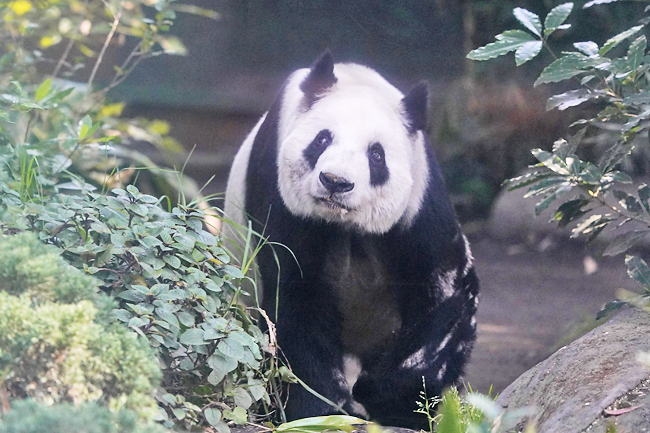MEXICO CITY (AP) – Xin Xin, the last panda in Latin America, is not your average bear. A native of Mexico, she’s the only remaining member of a diaspora descended from giant pandas China gifted to foreign countries during the 1970s and 1980s.
Mexico’s Chapultepec Zoo is one of only two zoos that houses pandas without the direct supervision of the Chinese government. That era may soon end after more than 50 years because Xin Xin, the granddaughter of pandas gifted by China, is childless, in menopause and, at 32, very old.
It could be the end for pandas in Latin America altogether if Mexico’s government balks at the price of a new panda.
Xin Xin is a second-generation Mexican-born panda, tracing her lineage to Pe Pe and Ying Ying, who arrived to the zoo in 1975. They were part of China’s early “panda diplomacy”, a period when the charismatic animals were gifted to countries around the world. In 1984, China ended panda gifts, switching to a policy of high-priced loans.
This history has made Mexico one of a few countries able to keep locally born panda cubs.
Since 1985, the loan programme has required that zoos return any cubs to China.

After Shuan Shuan’s death, Mexican officials began speaking with China’s ambassador.
China now loans giant pandas for between 10 and 15 years at a cost of USD1 million annually, meant to support panda conservation in China.
The austere administration of Mexico President Andrés Manuel López Obrador appears unlikely to agree to this price.
“Another arrangement will definitely have to be found, but it will depend a lot on the will and necessities of both countries,” said Director of Mexico City Zoos and Wildlife Conservation Fernando Gual.
Xin Xin’s own interests are more down to earth. She passes the time relaxing in a hammock and padding tranquilly around her enclosure looking for bamboo. Sometimes, her trainer also hides her favourite treat, red apples.
Watching Xin Xin, Gual smiled as he remembered the July 1, 1990 morning when her mother Tohui surprised everyone at the zoo by giving birth to a four-ounce Xin Xin, far from the camera that recorded her movements 24 hours a day.
“It’s impossible not to have an attachment to these animals,” Gual said. “We saw most of them being born here.” Tohui was the second panda ever born outside China, and the first to survive infancy, living to age 12. Pop star Yuri released a song expressing the city’s pride and excitement.
The life expectancy of a giant panda in the wild is about 15 years, but in captivity they have lived to be as old as 38. Decades of conservation efforts in the wild and study in captivity saved the giant panda from extinction, increasing its population from fewer than 1,000 at one time to more than 1,800 today in the wild and captivity.
Mexico’s remarkable success makes it one of only two zoos to run a panda programme outside the control of the Chinese government, according to the Congressional Research Service. The other is in Taiwan, which received two pandas in 2008 in exchange of a pair of endangered sika deer.







